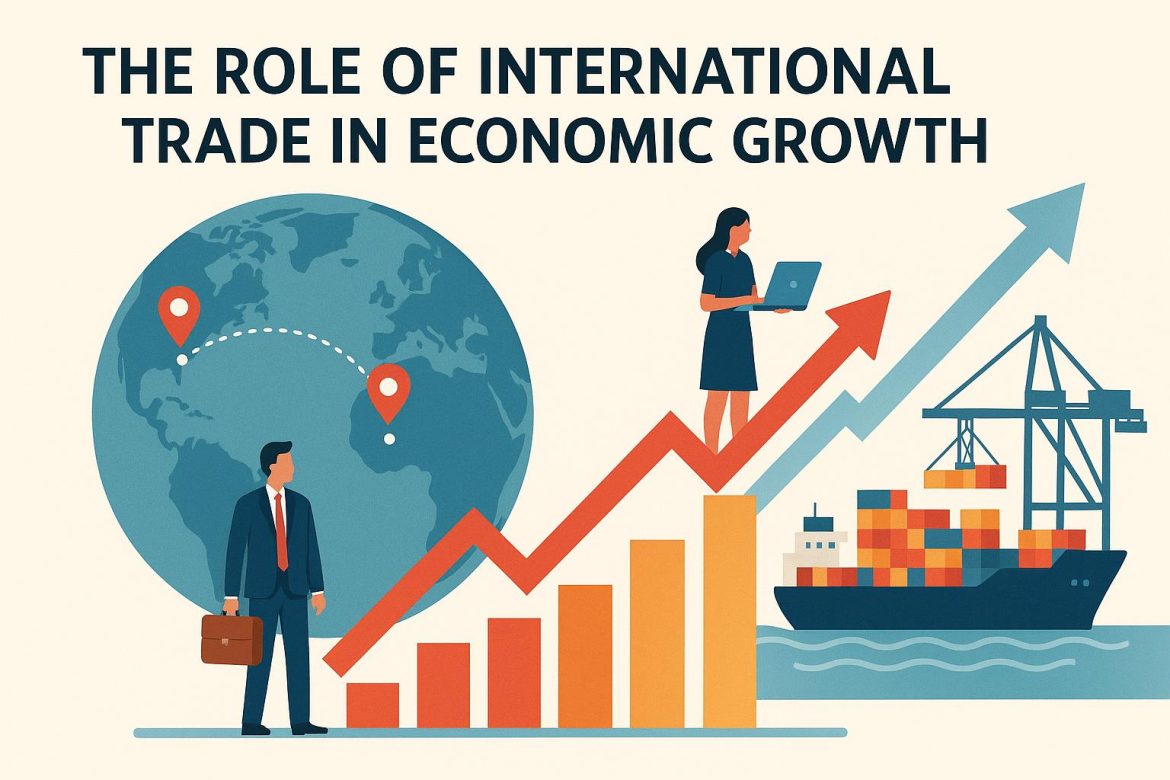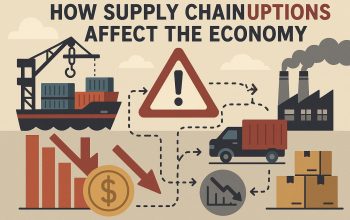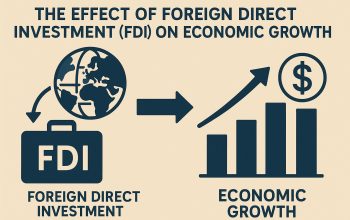The Importance of International Trade in Economic Growth
International trade serves as a cornerstone of economic growth for nations, facilitating the exchange of goods and services across borders. By enabling countries to specialize in producing goods and services in which they hold a comparative advantage, international trade leads to increased productivity and improved competitiveness. This expanded view delves into the multifaceted aspects of international trade and its contributions to economic development.
Enhancement of Resource Allocation
International trade fundamentally enhances resource allocation on a global scale. Countries engage in trade based on the principle of comparative advantage, which encourages them to export products wherein they possess a lower opportunity cost of production and import those in which they are comparatively disadvantaged. This process of specialization and targeted production fosters more efficient resource allocation. This, in turn, yields higher output levels, ultimately propelling economic growth.
Understanding Comparative Advantage
Comparative advantage forms the basis of why specific nations specialize in particular products. This concept explains how countries benefit by directing resources toward the manufacture of goods and services with the lowest relative costs rather than attempting a wide array of productions. Thus, comparative advantage becomes a guiding principle for trade policies and economic strategies, underscoring its significance in resource distribution.
Market Expansion
A pivotal benefit of international trade is the expansion beyond domestic markets. For businesses, this means access to a broader consumer base, allowing them to enjoy improved economies of scale. By tapping into international markets, companies can augment their sales revenues and distribute fixed costs more economically across increased production volumes. This market expansion is crucial for economic growth, prompting innovation and incentivizing investments in advanced technologies.
Economies of Scale
The concept of economies of scale refers to cost advantages realized when production becomes efficient, as the costs per unit of output decrease with increasing scale. Access to larger markets aids in capitalizing on these economies, universally enhancing business viability and economic robustness. Consequently, market expansion is not solely about entering new territories but extensively about optimizing production efficiency.
Technological Progress and Innovation
Engagement in international trade fosters exposure to cutting-edge technologies and innovative practices from global partners. This openness enables domestic businesses to incorporate new technologies, refine internal operations, and bolster competitive positioning. Technology transfer through trade is a catalyst for technological progress, an essential pillar of sustained economic growth. By staying updated with external technological advancements, nations can sustainably develop their economic infrastructures.
Diversification of Products and Services
Through international trade, a nation’s economy can diversify its activities and reduce dependence on a narrow range of industries. This ability to source a variety of inputs and consumer goods enables economies to broaden their industrial bases. Diversification is integral to fostering economic resilience and stability, particularly crucial in the ever-fluctuating global market landscape. It offers a buffer against economic shocks by spreading risks across a wider array of sectors.
Employment Opportunities
With the economic expansion spurred by international trade, employment opportunities proliferate. As industries scale up due to broader market access, there is a concomitant surge in demand for labor, resulting in widespread job creation. Over time, trade-induced growth can enhance wage levels and elevate living standards. The ripple effect of employment extends beyond mere numbers, contributing to skill enhancement and workforce diversity.
Skill Development and Labor Market Dynamics
The stimulation of job creation through trade also necessitates skill development among the workforce. As new industries emerge and existing ones expand, the demand for skilled labor becomes acute. This dynamic fosters educational advancements and vocational training initiatives, preparing the labor force to meet evolving economic needs. Thus, international trade not only expands employment but also transforms labor market dynamics, tailoring them for future economic demands.
Challenges and Considerations
Despite its manifold advantages, international trade is accompanied by challenges that require careful address. Developing effective trade policies is vital to ensure that the benefits of trade are equitably distributed and environmental concerns are adequately managed. Nations must cultivate policies that facilitate fair competition and conscientiously tackle issues like trade imbalances and sustainability.
Trade Policies and Fair Competition
Effective trade policies are instrumental in shaping the landscape of international trade. By crafting regulations that govern trade practices, nations can maintain fair competition. Such policies ensure that all participants in the global market operate under equitable conditions, safeguarding against monopolistic tendencies and ensuring that trade leverages developmental goals.
Trade and Income Inequality
A pressing challenge linked to international trade is its potential impact on income inequality. Although trade can bolster overall economic growth, not all segments of society may equally reap its benefits. Policymakers are tasked with devising strategies to bridge this gap and facilitate an equitable distribution of trade gains. Achieving parity in how the advantages of trade manifest across different societal strata is a critical consideration for sustainable economic advancement.
Environmental Concerns
International trade can exert pressure on environmental resources, raising concerns regarding sustainability. The interconnectedness of trade and the environment necessitates policies that reconcile economic growth with environmental stewardship. By promoting environmentally sound trade practices, countries can align their economic agendas with global sustainability objectives.
Conclusion
In summation, international trade is an indispensable driver of economic growth. It enhances the efficient allocation of resources, expands markets, contributes to technological advancement, and promotes job creation—each of which significantly fuels national prosperity. Nevertheless, to fully realize its potential, countries must adeptly manage the associated challenges and institute policies fostering inclusive and sustainable development.
For further exploration of international trade and its broader economic ramifications, resources from esteemed organizations such as the World Bank and the International Monetary Fund offer invaluable insights.
This article was last updated on: November 19, 2025




